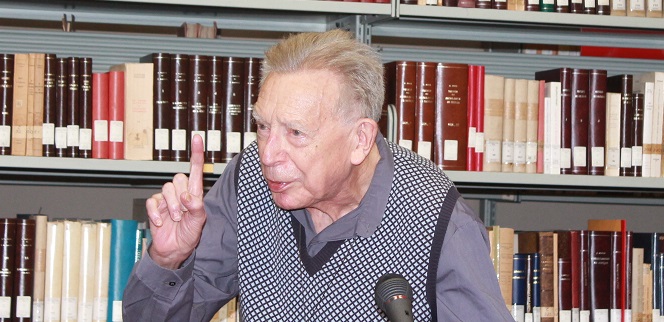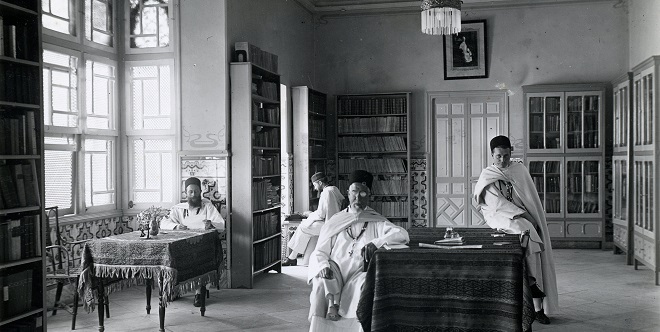The library maurice borrmans
The Library is the beating heart of PISAI. Since its foundation, it has specialized in books and journals on Arabic and Islamic culture, in keeping with the Institute’s scientific approach to primary sources, as well as in texts of orientalists and works dedicated to Christian-Muslim relations.
Since February 2018 the Library has been dedicated to the memory of Father Maurice Borrmans, M.Afr.
Currently the Library holds about 40,000 volumes, half of which are in Arabic, 900 journals, 250 of which rare or extinct, 30 fine editions, and 30 Arabic manuscripts kept at the Vatican Library.
The Library’s holdings are divided into sections by subject and cover the most important fields of Islamic sciences. Particularly relevant are the sections dedicated to the Qur’an – with various editions and translations of Islam’s sacred book, the great classical commentaries, and numerous thematic studies – and to the Sunna or prophetic tradition, with the most important collections of sayings or deeds of Muḥammad.
The donations of benefactors have allowed the creation of some interesting SPECIAL COLLECTIONS.
Online access to the Library’s collection is possible through the CATALOGUE KOHA and the PERIODICALS SEARCH ENGINE.
READ THE LIBRARY REGULATION
historical notes
The origins of the present library were located in Tunis, where in 1926 the Society of Missionaries of Africa (White Fathers) established a house for the formation of missionaries preparing to live among Muslims. From the outset an effort was made to provide the house with a specialized library. In 1931 this foundation took the name Institut des Belles Lettres Arabes (IBLA).
In 1949 it was decided to separate the teaching section from the other activities of IBLA. Thus was born at Manouba, near Tunis, a Study Centre where Islam and the Arabic language were taught.
In 1960, by decree of the Congregation of Seminaries and Universities, this Centre was erected as the Pontifical Institute for Higher Oriental Studies, better known in French as Institut Pontifical d’Etudes Orientales (IPEO).
In 1964 the Institute and its library were transferred to Rome, where they occupied a building at Viale XXX Aprile, 15, for three years. In 1967 the Institute obtained from Pope St. Paul VI larger premises inside the Palazzo Sant’Apollinare.
The move to Rome, where a Pontifical Oriental Institute already existed, made it necessary to change the Institute’s name to the Pontifical Institute for Arabic Studies. The Apostolic Constitution Sapientia christiana of 15 April 1979 gave the Institute its present name of the Pontifical Institute for Arabic and Islamic Studies (PISAI). Finally, in 1990 the Institute moved to its current location at Viale di Trastevere, 89.










